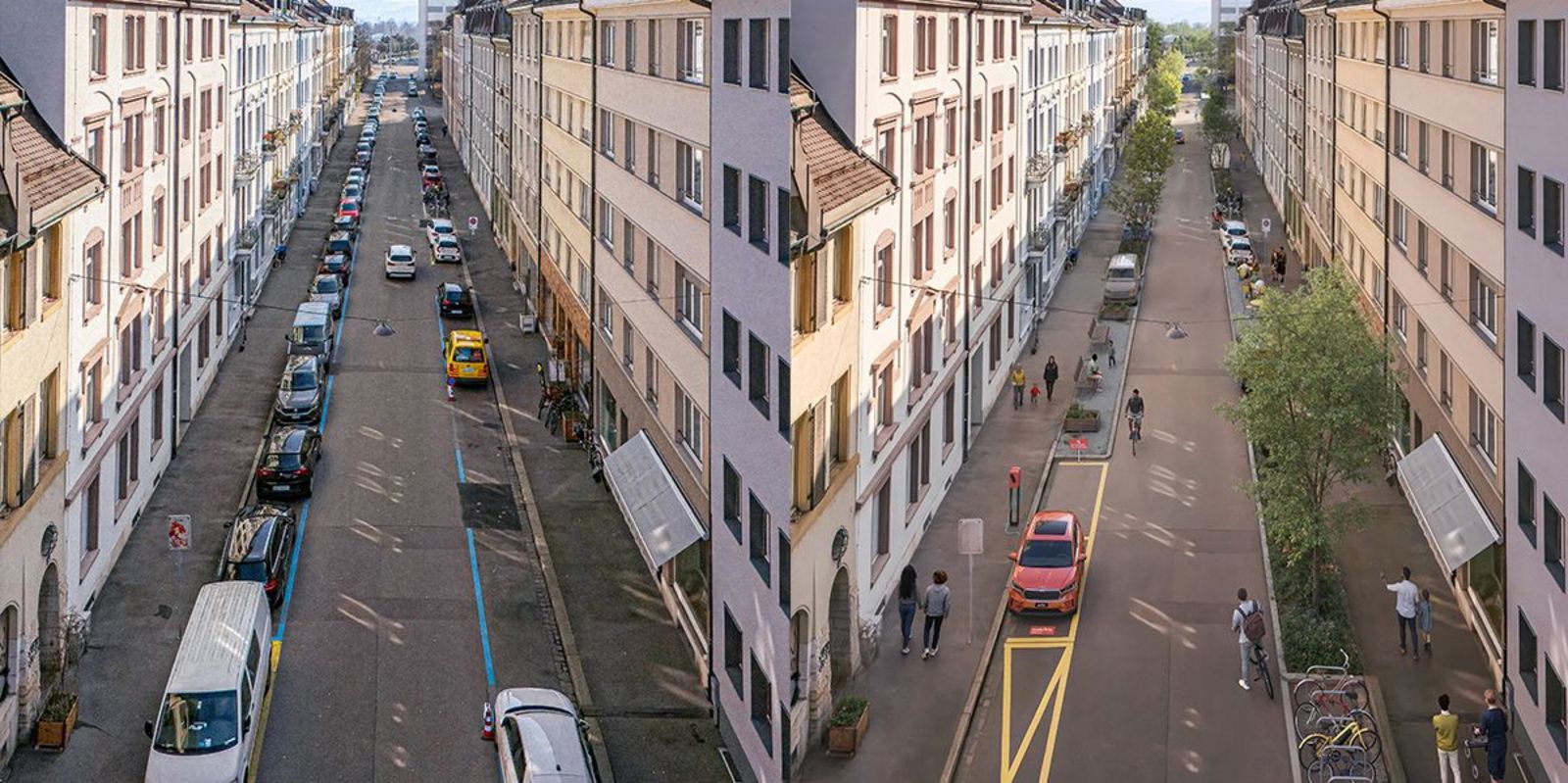1:18 in the whole of Switzerland, 1:23 in Basel
Without Mobility car sharing, there would be an additional 2'800 cars on the road in the city of Basel. This is shown by a new report that has analysed the traffic-relieving effect of car sharing. The consultancy firm BSS Volkswirtschaftliche Beratung, in cooperation with the Eastern Switzerland University of Applied Sciences OST, surveyed thousands of Mobility users. The result is impressive – on average, each Mobility car replaces 18 private cars.
Study co-author Fabiana Kappeler says: “The results show that, according to their own assessment, the respondents would own significantly more cars without Mobility. Mobility’s car sharing offer means that parking space can be saved on a massive scale – space that is then available for other uses.”
Park the Joggeli five times
In the largest Swiss cities, the avoidance rate is even higher than 18 in some cases. But nowhere is the effect as great as in Basel: Here, each Mobility car replaces 23 private cars. If you take all the shared cars of the cooperative in the city together, this results in 2,800 cars that are avoided. In terms of parking spaces, this corresponds to an area of 35,075 square metres - or five times the size of the St. Jakob Park football pitch. The city of Basel therefore seems to be perfectly suited to car sharing. Thanks to good local amenities and the ideal complement of a dense public transport network.
Traffic-calmed streets
How can this effect be illustrated? Using photos. To this end, roads were photographed in Switzerland’s largest cities. The cars that were lost in the city in question thanks to Mobility customers were then removed from these streets and replaced, for example, by green spaces.
For example, the Hochstrasse in Basel. On the left the original image, on the right with an integrated use of Mobility. If you assume that 1 Mobility car makes 23 private cars superfluous, you have more space for life.
Decide for yourself which street you prefer to live in:

Car sharing reduces private motorised transport
The report also looked at the level of motorisation of households: In the cities studied, the number of cars per 1,000 people in average households is on average at least twice as high as in households with a Mobility subscription. Fabiana Kappeler says: “Thanks to the car sharing scheme, many Mobility customers do without a private car completely. This has a direct impact on mobility behaviour: People who do not own a car are more likely to travel by public transport, bicycle or on foot. This also means a reduction in individual motorised transport.”
Strong argument for more shared mobility
“For me, the results of the study are a huge incentive for further expanding our offer,” says Mobility CEO Roland Lötscher. “If we want to overcome the mobility challenges in Switzerland, we need a significantly higher proportion of car sharing in the mobility mix.” To achieve this, Mobility intends to work even more closely with cities, cantons, companies and upper-level apartments in future. “Together, we want to make sustainable mobility as easy as possible.”


Your comment